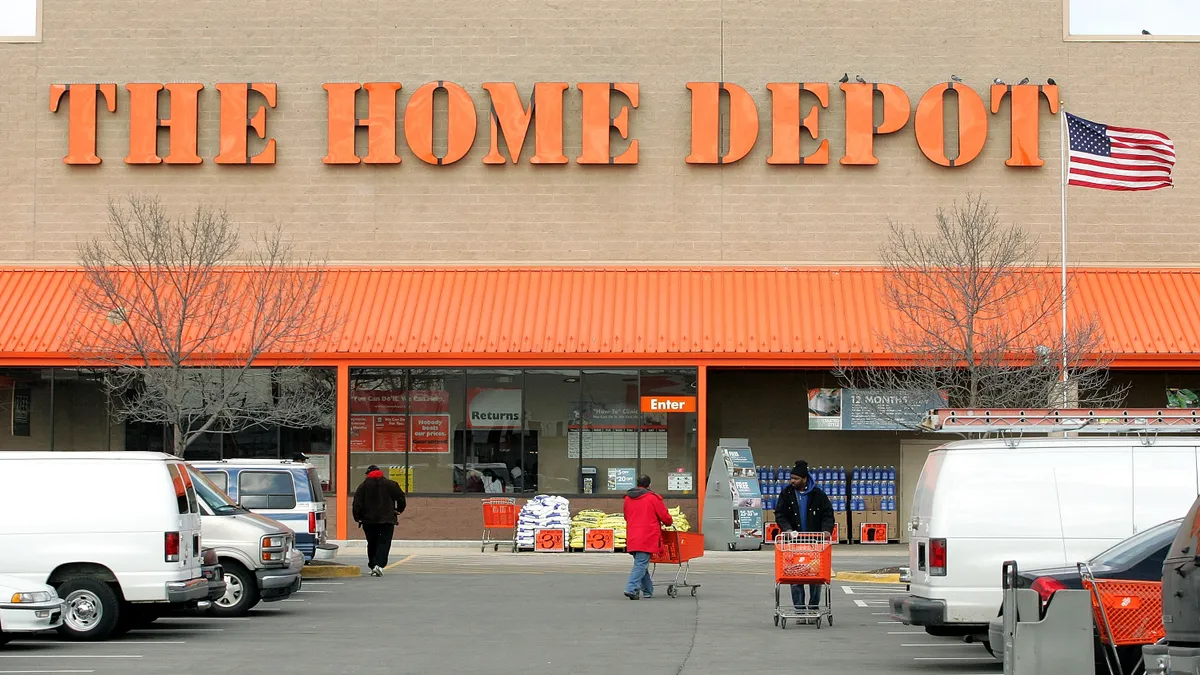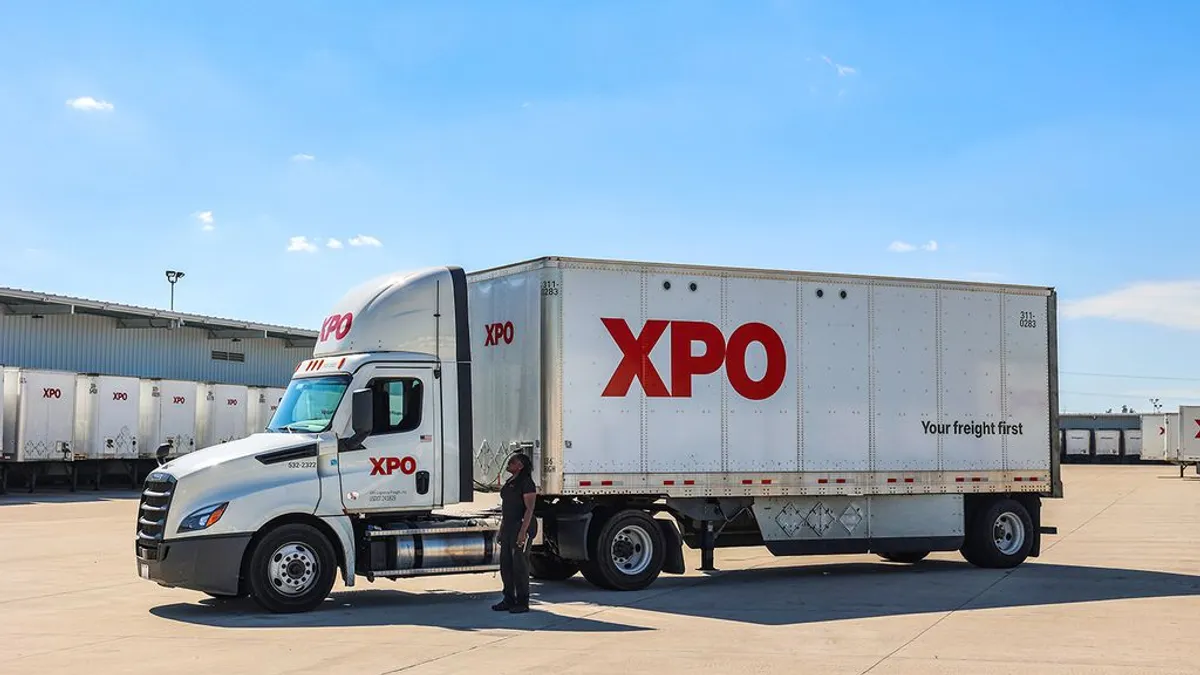Dive Brief:
- Carriers that are part of The Home Depot's dedicated flatbed truck capacity, can reduce empty miles through the Flatbed Messenger marketplace from Loadsmart, according to an announcement Wednesday. The platform is supply-led; available trucks and backhaul capacity pair with shipper loads.
- Using Loadsmart algorithms, Flatbed Messenger processes a truck's location, price and destination, and matches that to a shipment in the system. This reduces deadheads for the carrier, which can be common on dedicated backhauls, Loadsmart said.
- The Home Depot selected carriers and vendors to participate in Flatbed Messenger. Carriers have been onboarding since the product was unveiled at The Home Depot Carrier Summit this year, and they're already being matched to a select group of shippers' loads, Loadsmart said.
Dive Insight:
Truck capacity is tight, and flatbed is no exception. Though down from a significant peak in May, the DAT load-to-truck ratio was an elevated 50.38 for the week of Sept. 19.
Flatbed capacity on the spot market is typically tighter than other trucking modes. As Robin Baggs, director of transportation for The Home Depot, put it in the announcement: "Flatbeds are an essential transportation mode, yet the flatbed industry remains highly fragmented."
Load-to-truck ratios
Freight that requires a flatbed truck is often heavy and oversized, making it difficult to load and unload, Loadsmart said in March when it announced dynamic pricing and instant booking via API integration for flatbed. There are also a variety of different types of flatbed trucks, and shippers have distinct accessorial requirements. That means booking freight has typically required extensive back-and-forth, according to Loadsmart.
"Automated supply-led booking doesn't exist at scale today, not for lack of interest, but because of feasibility challenges," Loadsmart Co-Founder and Co-CEO Felipe Capella said in the announcement. The broker needs data on truck location, empty/full status, driver hours of service, price and destination, he said.
But, he added, such offerings "will become increasingly important to the future of freight brokerage."
Sarah Galica, vice president of transportation for The Home Depot, said at a recent event that using Loadsmart helps the company to simplify flatbed freight booking. She added then that her company was "looking to sell off" empty miles in pursuit of cost savings.
Loadsmart is also touting Flatbed Messenger’s sustainability benefits, as better route efficiency leads to lower emissions.
Scope 3 emissions, which is where purchased transportation lies, are notoriously tough for businesses to tackle. The shipper does not have direct control over the equipment or processes used. But pressure from shareholders and consumers to go greener has been mounting over the last few years.
Flatbed Messenger is part Loadsmart's effort to provide products that are more "environmentally sustainable," Capella said, "reversing the traditional dynamics that are increasingly obsolete in a more volatile and complicated supply chain."











